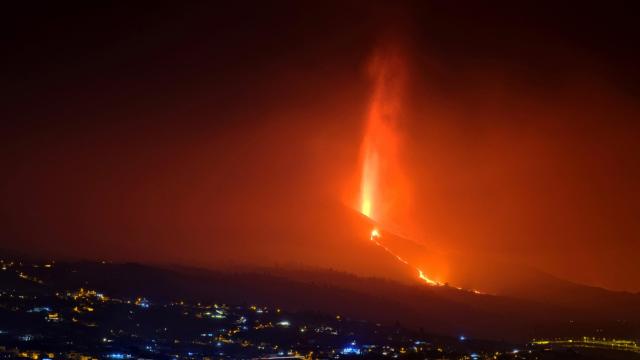A volcano on the Spanish island of La Palma has been erupting for more than a week. Over the weekend, it began spewing out lava and smoke with renewed fervor.
Lava from the Cumbre Vieja volcano, which sits on one of the Canary Island off the coast of northwest Africa, is now threatening to flow to the Atlantic Ocean. On Monday, residents on the island’s eastern coast were forced into lockdown in anticipation of lava that could lead to dangerous conditions where it meets the sea.
The eruption flung molten rock into the air, turning the sky a surreal orange colour. Here are some of the wildest images from the region the past few days, and what residents are dealing with as Cumbre Vieja continues to rumble to life.
Cumbre Vieja Is Erupting Again
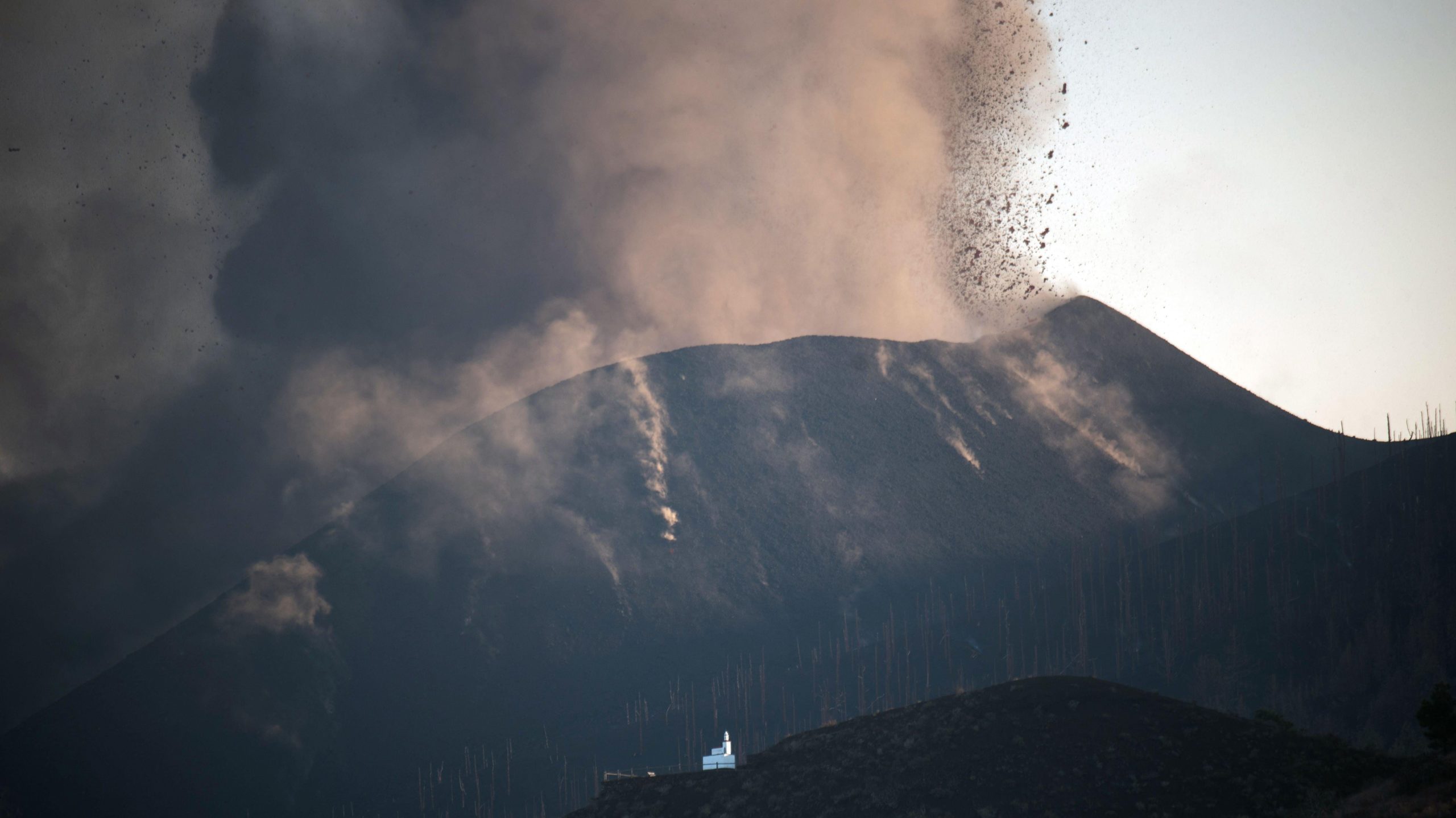
On Sunday, a new vent in Cumbre Vieja opened up, sending scalding rivers of lava flowing down the mountainside, destroying everything it touched. Roughly 7,000 people have been forced to evacuate since the eruption began last week.
Early on Monday, residents of La Palma saw a few hours of calm as the eruption reduced to a summer. The pause came after the Canary Islands Volcanology Institute, or Involcan, reported that the amplitude of the volcanic tremor had “decreased notably” on Saturday night.
Renewed Eruptions
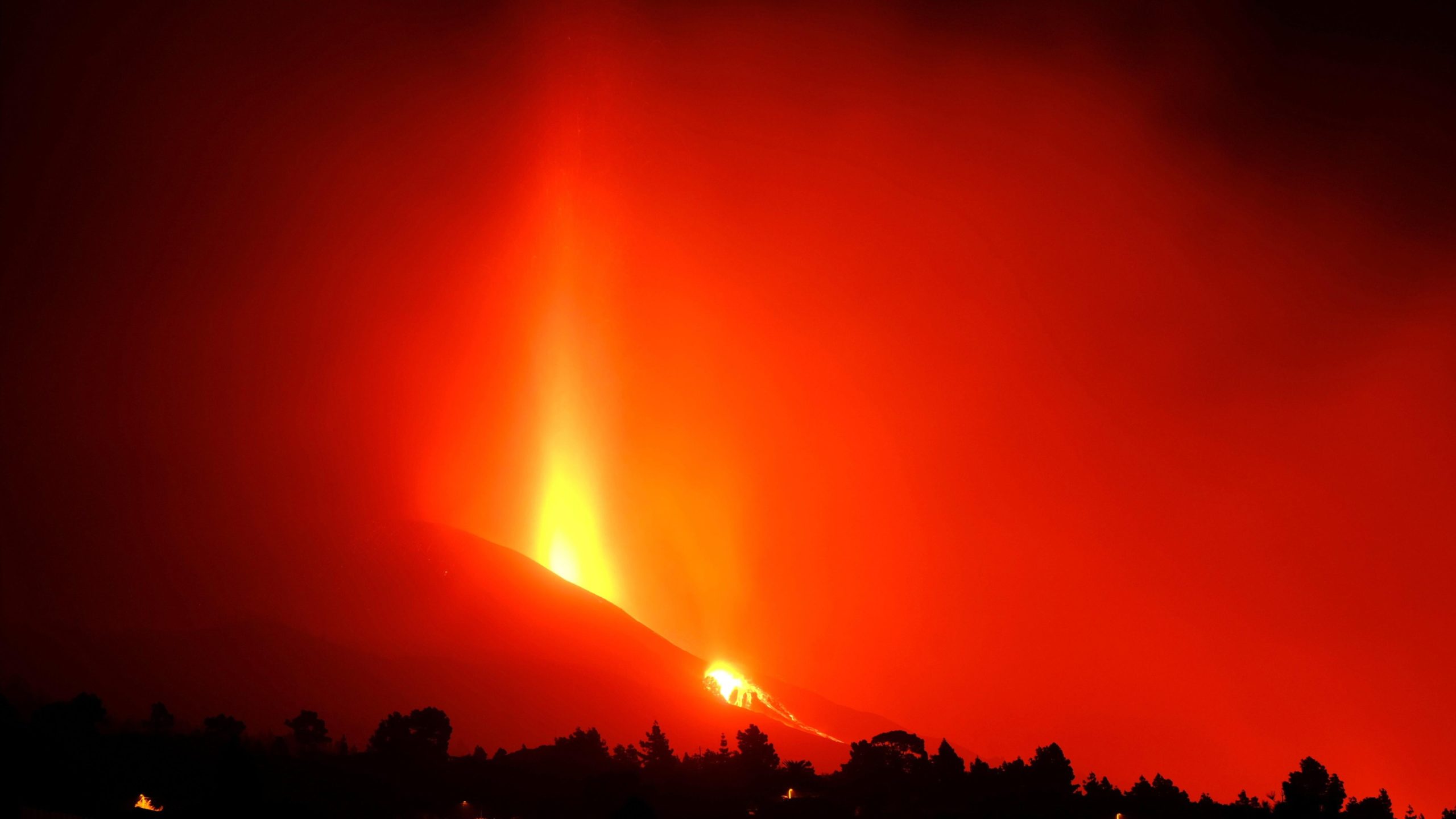
But the group also said “this does not imply the eruption is coming to an end.” Indeed, the quiet was short-lived. Within a few hours, the volcano started erupting again, sparking fears that lava could soon reach the sea.
Lava from the Cumbre Vieja, which authorities say measures 1,250 degrees Celsius, poured through southern La Palma towns on Monday morning. The lava flow now sits just 1.6 kilometres from the island’s coast.
Explosive Interactions Could Happen if Lava Meets the Sea
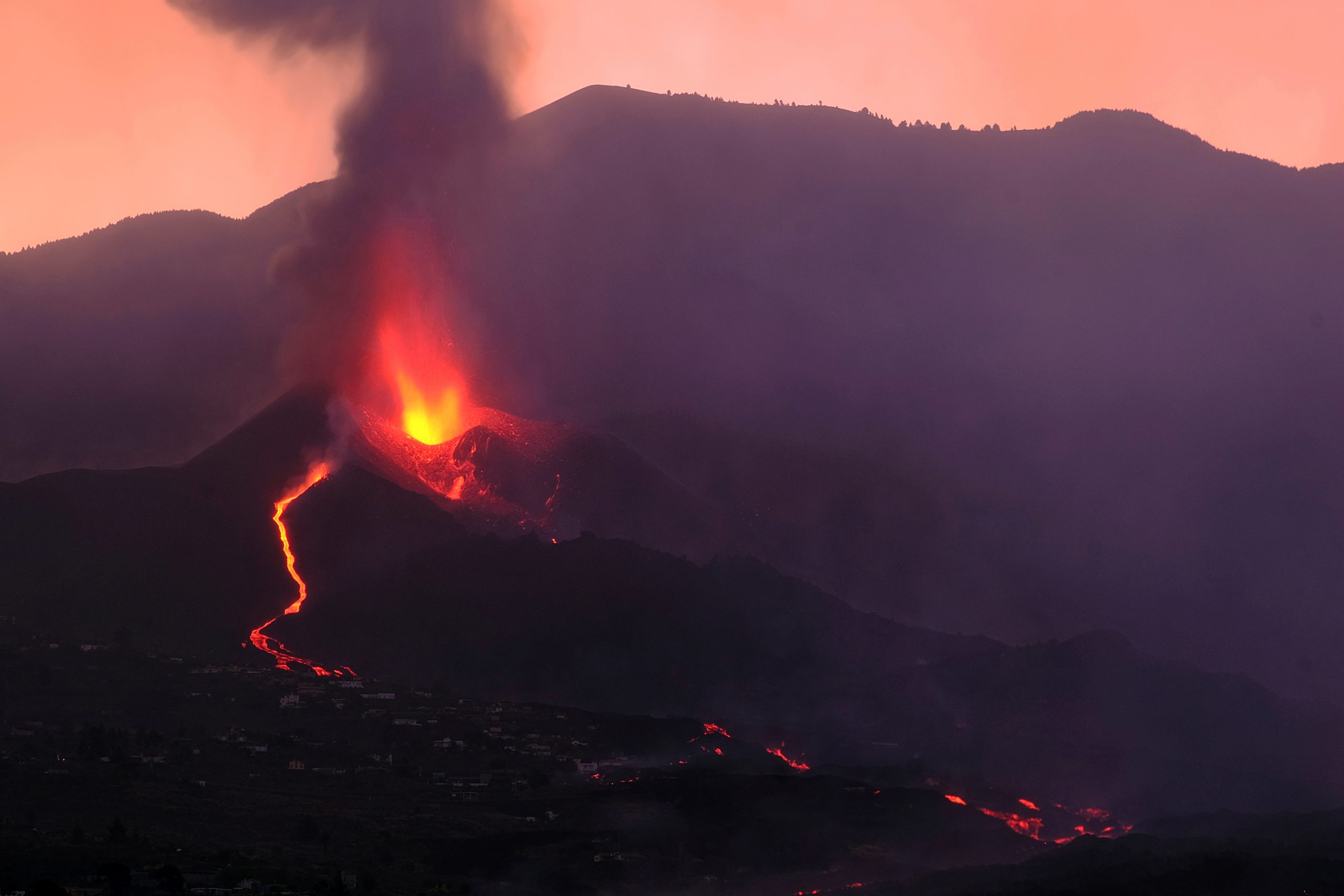
Lava could meet the Atlantic Ocean in the coming hours, which would trigger explosions as sizzling molten rock meets the cool seawater. The interaction could also cause the release of toxic gases including “water vapour loaded with hydrochloric acid,” Involcan explained in a Facebook post. Such an event would also shoot tiny particles of volcanic gas into the air which can cause skin, eye, and respiratory irritation.
Authorities issued lockdown orders for the coastal towns of San Borondon, Marina Alta, Marina Baja, and La Condesa, instructing residents to stay home with their windows and doors shut.
The Precautions Are Needed to Protect Public Health
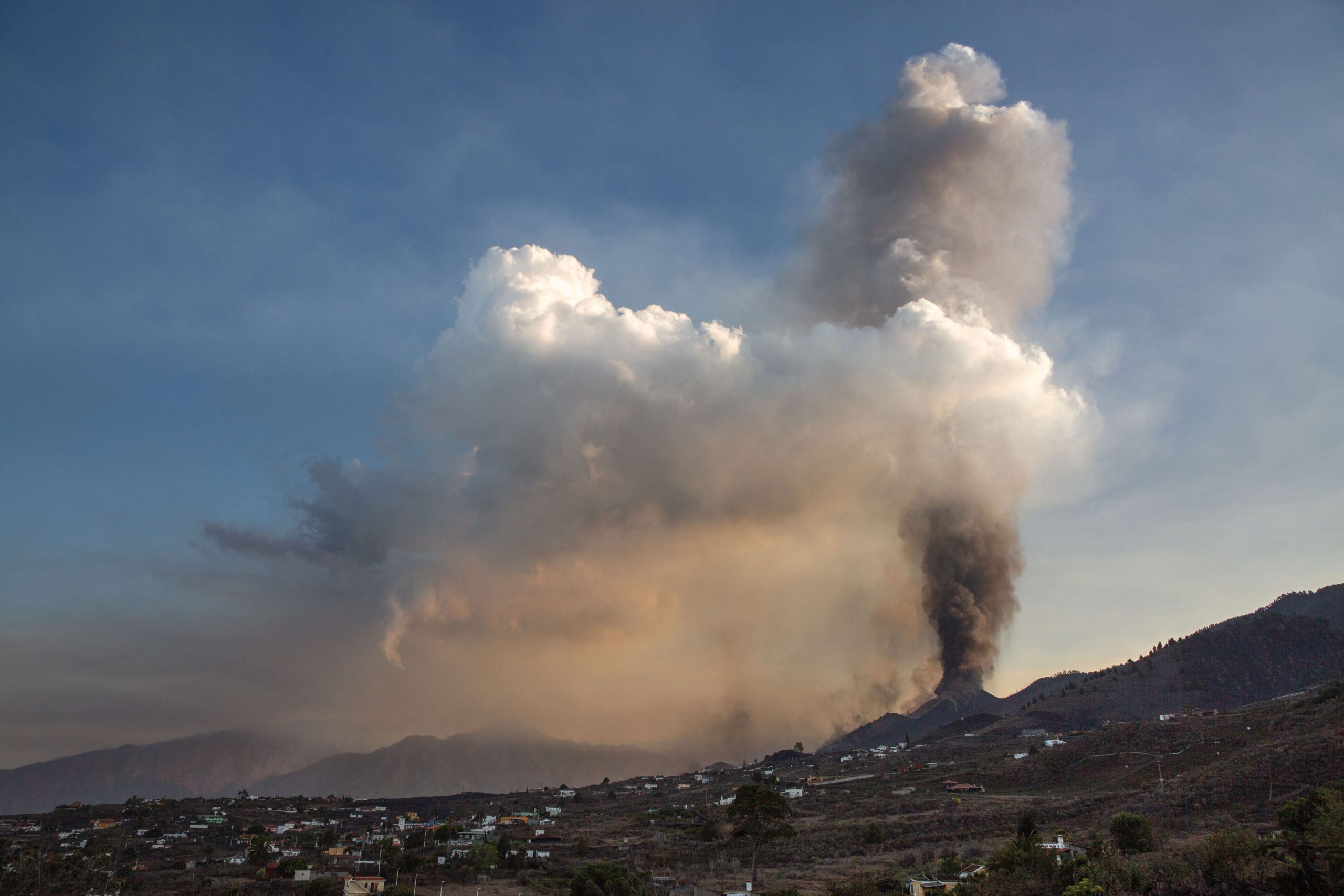
Because the vapors from such an explosion would mostly impact those within the immediate vicinity of the shoreline, La Palma officials set up a 2-kilometre exclusion zone to keep people away. Officials have also called on residents within 5 kilometres of the volcano to beware that any explosion could cause the glass in their homes to shatter.
The main airline for the Canary Islands, Binter Canarias, said Monday that it will continue to halt all trips through the La Palma airport while it continues to monitor the volcano.
Assessing the Damage
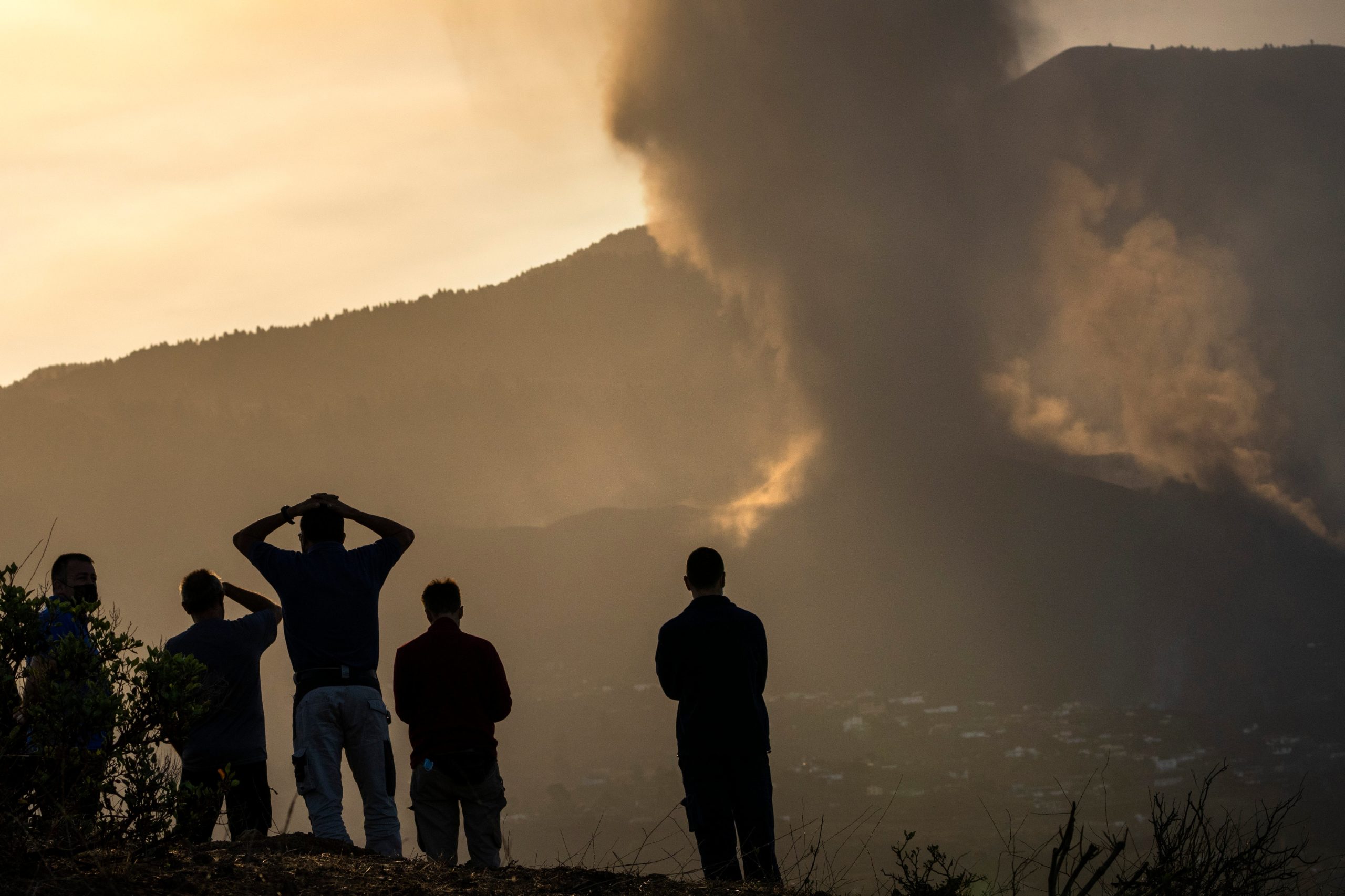
Since the volcanic eruption began, lava has spread across more than 570 acres of land, according to the European Union satellite monitoring service Copernicus. It’s destroyed hundreds of homes and ravaged roads, schools, and churches. It’s also imperilled about 15% of the island’s banana crops, which could destabilise the economy. More than 500 buildings have also been destroyed by the eruption. But thankfully, no fatalities or serious injuries have been reported.
Residents Are Cleaning Up and Staying Vigilant
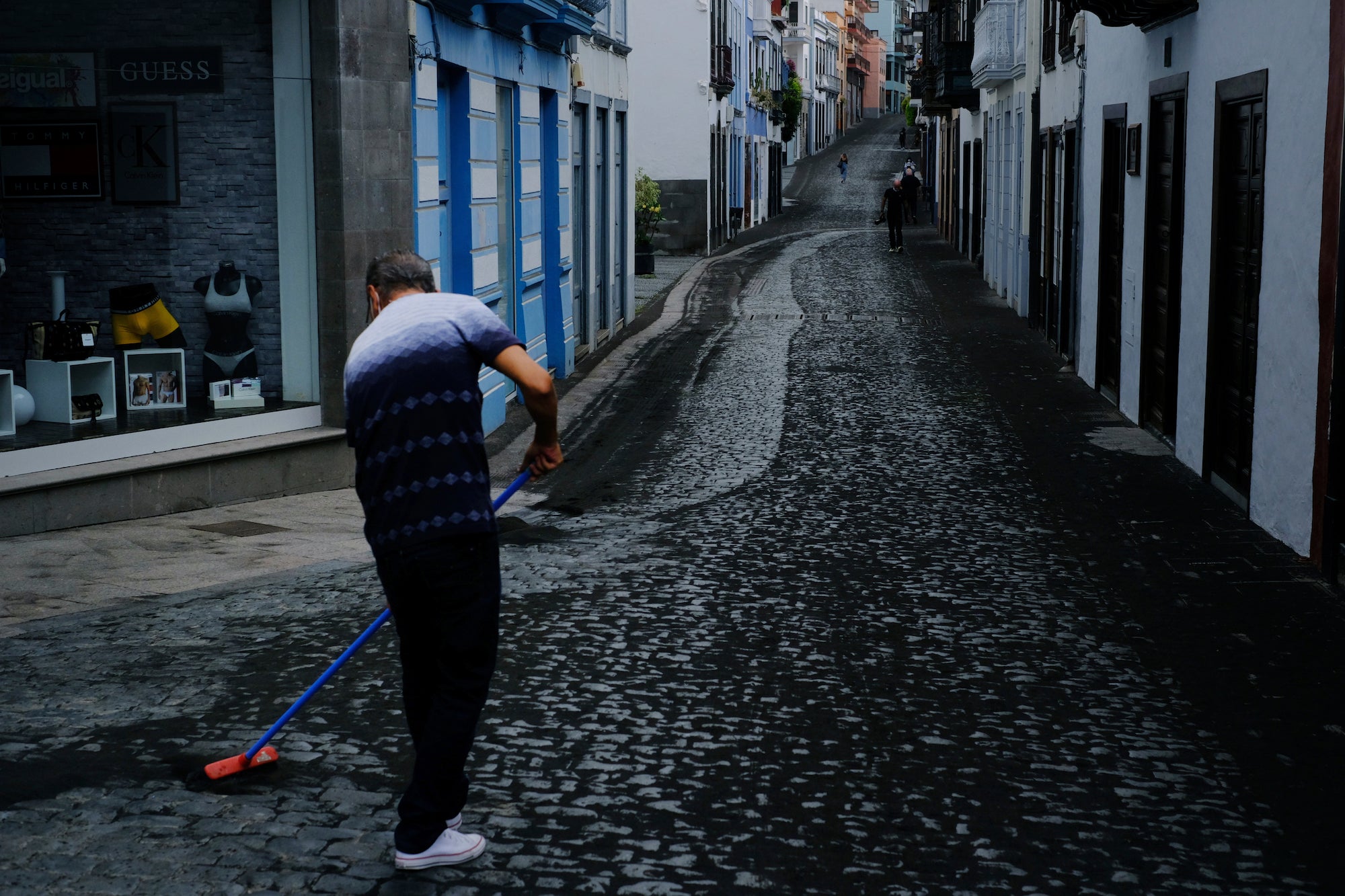
Ashfall has reached Santa Cruz de La Palma, the capital city of the island. Residents were seen cleaning a layer of black crud off the streets and walking with umbrellas on Monday morning. It reflects the strange dichotomy of an explosive eruption and life going on as normally as can be given the situation for some of those on the island further from the eruption and areas where lava is nearing the Atlantic.
“We’re not in a state of total alarm,” the technical director of the volcano emergency response unit, Miguel Ángel Morcuende, said at a news conference. “Life on the island is continuing, though those close to the eruption are facing difficulties.”
